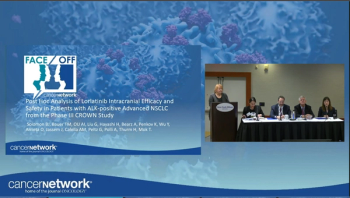
A discussion on the Post Hoc Analysis of Lorlatinib Intracranial Efficacy and Safety in Patients with ALK Positive Advanced NSCLC: Phase III CROWN Study

Your AI-Trained Oncology Knowledge Connection!


A discussion on the Post Hoc Analysis of Lorlatinib Intracranial Efficacy and Safety in Patients with ALK Positive Advanced NSCLC: Phase III CROWN Study

It is important to look at different assays beyond immunohistochemistry to better gather information and potentially predict the activity of trastuzumab deruxtecan in patients with HER2-positive metastatic breast cancer, says Paolo Tarantino, MD.
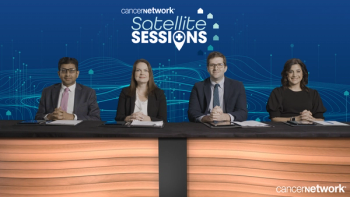
The expert panel provides clinical insights on the role of CAR T-cell therapy and factors that influence treatment selection in the second line and beyond.

Multiple myeloma specialists outline frailty assessment practices and discuss how frailty informs treatment decisions.
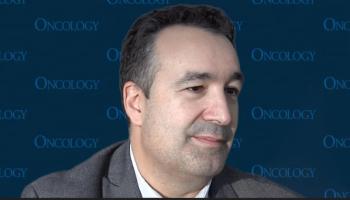
The safety profile of idecabtagene vicleucel in relapsed/refractory multiple myeloma following the first 3 months of treatment appears to be comparable with standard therapies, says Rachid Baz, MD.
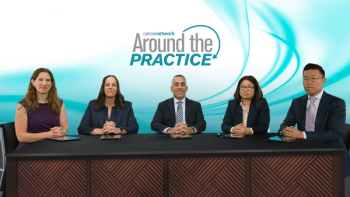
The panel reviews treatment strategies for HER2-positive metastatic colorectal cancer patients in various scenarios, including those with HER2 mutations, RAS mutations, and different levels of HER2 expression, emphasizing the importance of reprofiling and considering the duration of response before changing treatment approaches.

Experts explore the management of interstitial lung disease in patients with colorectal cancer receiving treatment with trastuzumab deruxtecan and the consideration of liquid biopsies to assess HER2 status and adapt treatment strategies.
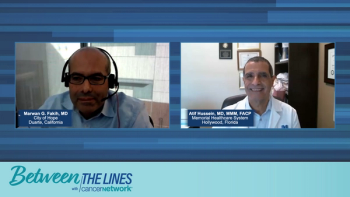
Marwan G. Fakih, MD, and Atif Hussein, MD, MMM, FACP, conclude their discussion with advice for clinicians treating patients with metastatic colorectal cancer.

The panel discusses the safety profile of talquetamab for patients with relapsed/refractory multiple myeloma.

Colorectal cancer specialists discuss the effect of the SUNLIGHT trial data on the overall treatment and research landscapes.
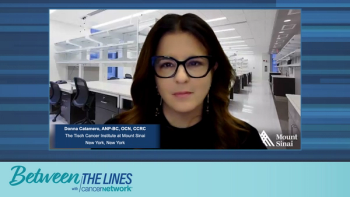
Donna Catamero, ANP-BC, OCN, CCRC, reviews findings from the MonumenTAL-1 study and the panel provides its impressions of the results.

Treatment with CAR T cells may allow patients with hematologic malignancies to recover more quickly compared with a transplant, says Andre Goy, MD.
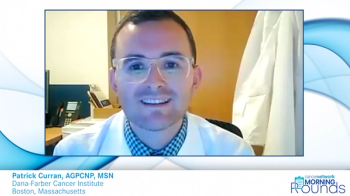
In closing, experts share clinical pearls on open communication with patients, dose reduction strategies, and the relevance of treatment holidays for improving quality of life in patients with renal cell carcinoma.
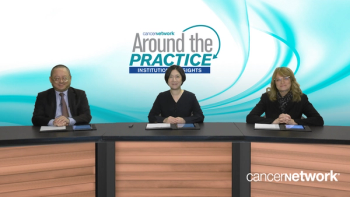
The panelists close their discussion on non-small cell lung cancer by emphasizing the need for continued research, early screening, and collaboration with dermatologists to address the unmet needs and improve overall outcomes.

Ritu Salani, MD, suggests using the immune system to find treatment options for cervical cancer is the logical course of action.
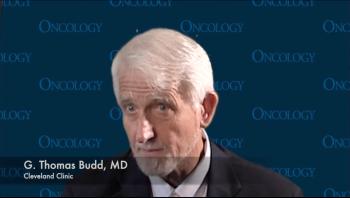
More funding is necessary for additional trials investigating the potential clinical benefit of an alpha-lactalbumin vaccine for patients with high-risk operable triple-negative breast cancer and those at high risk of developing the disease, says G. Thomas Budd, MD.
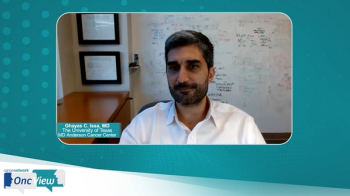
An expert on acute myeloid leukemia gives an overview of disease subtypes and provides insights on risk stratification.

Ghayas C. Issa, MD, describes the typical presentation of patients with acute myeloid leukemia and provides clinical insights on evaluating response and potential disease progression.

Administering immunotherapy following surgery in patients with early-stage triple-negative breast cancer does not appear to be as effective as beginning with neoadjuvant treatment, says Peter Schmid, MD, PhD.
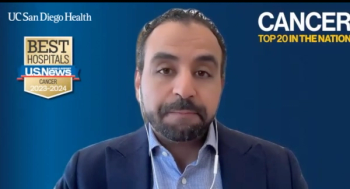
The phase 3 NRG GY018 trial added immunotherapy to chemotherapy in patients with recurrent endometrial cancer, regardless of mismatch repair deficient or proficient disease status, according to Ramez N. Eskander, MD.
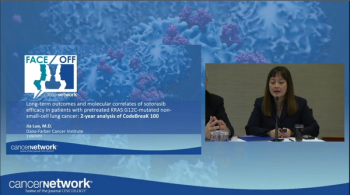
The outcomes of the use of Sotorasib in patients with pretreated KRAS G12C mutated NSCLC.
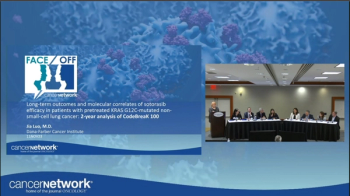
Highlight on the debate format, speakers, and direction to support the discussion.
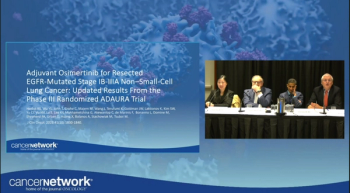
Results of phase 3 ALTA-1L study comparing crizotinib with Brigatinib in advanced ALK-positive non-small cell lung cancer
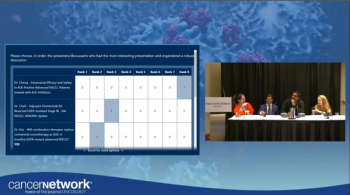
An outline of the debate, the speakers, and the basic guidelines to support the program.
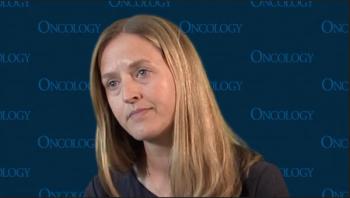
Heather A. Parsons, MD, MPH, says she is excited about HER2 as a biomarker and investigating the biology of metastatic breast cancer with a minimally invasive liquid biopsy platform.

Dr Narjust Florez outlines FDA-approved firstline therapy options for KRAS G12C mutated non-small cell lung cancer, and notes most patients progress and require second line targeted therapy.

Narjust Florez, MD, discusses KRAS G12C mutated non-small cell lung cancer, a subset of KRAS mutations which comprises 14% of NSCLC cases.

Experts discuss the strategies and considerations for bridging therapy and the management of patients with relapsed/refractory multiple myeloma receiving CAR T-cell therapy.
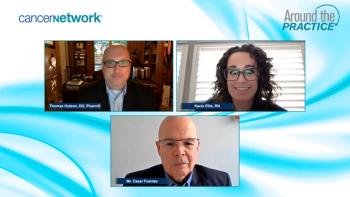
After his initial fear, Mr. Fuentes educated himself extensively on cancer to understand his diagnosis, which along with having a treatment plan in place, specialist referrals, and tolerable side effects, helps him maintain a positive mindset and manageable quality of life with stage 4 disease.
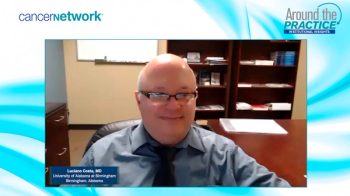
Luciano Costa, MD, discusses the effectiveness and challenges of CAR-T therapy ciltacabtagene autoleucel for patients with multiple myeloma, emphasizing the response rates and duration and the advantages in early lines of treatment.